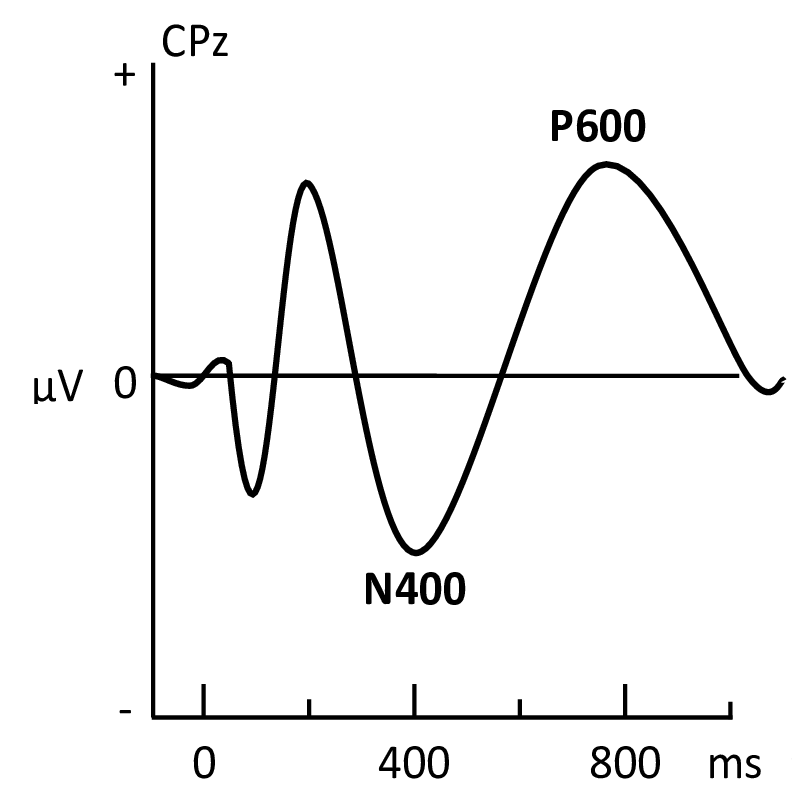Spelling Sensitivity in Russian Speakers Develops by Early Adolescence

Scientists at the RAS Institute of Higher Nervous Activity and Neurophysiology and HSE University have uncovered how the foundations of literacy develop in the brain. To achieve this, they compared error recognition processes across three age groups: children aged 8 to 10, early adolescents aged 11 to 14, and adults. The experiment revealed that a child's sensitivity to spelling errors first emerges in primary school and continues to develop well into the teenage years, at least until age 14. Before that age, children are less adept at recognising misspelled words compared to older teenagers and adults. The study findings have been published in Scientific Reports.
By the time they finish primary school, children's reading of high-frequency words becomes automated. Behavioural studies measuring parameters like reaction time and error rates show that children at this age can reliably distinguish between words and letter strings resembling words.
The event-related potential (ERP) method is a promising approach to examining the reading process in neurophysiological research. Event-related potentials are the brain's electrophysiological responses to perceptual events (such as specific sensations), cognitive events (like decision-making), or motor events (such as pressing a button).

The ERP method allows for assessing the brain's response to verbal stimuli and identifying time intervals—components within the ERP—associated with their processing. In primary school-age children, the ERPs in response to words and strings of non-letter symbols differ at 200 ms after presentation, but distinctions between words and meaningless strings of actual letters are detected much later, only after 400 ms. This indicates that such stimuli are more challenging for young children to process.
However, sensitivity to spelling patterns is not limited to the ability to distinguish words from meaningless letter sequences but also involves more complex skills related to recognizing spelling errors. The issue is that the neural bases underlying the development of orthographic sensitivity remain poorly understood.
Scientists at the RAS Institute of Higher Nervous Activity and Neurophysiology and the Centre for Cognition and Decision Making of the HSE Institute for Cognitive Neuroscience used electroencephalography (EEG) to investigate event-related potentials associated with spelling error recognition. The study involved children aged 8 to 10, early adolescents aged 11 to 14, and adults aged 18 to 39, all of them native speakers of Russian. None of the subjects experienced spelling difficulties.
The subjects were presented with words on a screen, some of which were spelled correctly while others were misspelled. The task was to determine whether the word on the screen was spelled correctly.
The experiment showed that all the groups successfully identified both correctly spelled and misspelled words. The average error rate, even among children aged 8 to 10, did not exceed 14%, although children had more incorrect answers and longer reaction times compared to early adolescents and adults.
Early adolescents and adults showed similar, though not identical, behavioural results. The response time to both types of stimuli and the percentage of erroneous responses to correctly spelled words did not differ between these groups. However, early adolescents were worse than adults at recognising misspelled words.
In adult participants, differences in ERPs between correctly and incorrectly spelled words were observed in two distinct time windows. This indicates that the recognition of spelling correctness by adults involves two ERP components: an early component around 400 ms and a later one of up to 600 ms, probably related to re-checking the spelling for errors.
In children aged 8 to 10, there were no differences in ERPs between correctly spelled and misspelled words. According to the researchers, this suggests that the ability to quickly recognise correct spelling is just beginning to develop at this age. Interestingly, in early adolescents, spelling recognition was reflected only at the later stage corresponding to the 600 ms component, ie they did not exhibit early differences related to automated spelling recognition.
The experiment revealed that a child's orthographic sensitivity first emerges in primary school and continues to develop well into the teenage years, at least until age 14. These findings contribute to our understanding of the neurophysiological mechanisms underlying the mastery of Russian spelling and how these mechanisms evolve with age.

Leading Research Fellow, Centre for Cognition and Decision Making, Institute for Cognitive Neuroscience
In our study, adults and adolescents did not differ in their reaction times to any of the stimuli: both groups recognized correctly and incorrectly spelled words at similar speeds. This suggests that they likely employed similar reading and spelling recognition strategies. Nevertheless, the percentage of misidentified misspelled words was higher in early adolescents compared to adults, suggesting that spelling sensitivity is still developing at this age.
See also:
Education System Reforms Led to Better University Performance, HSE Researchers Find
A study by researchers at the HSE Faculty of Economic Sciences and the Institute of Education have found that the number of academic papers published by research universities in international journals has tripled in the past eight years. Additionally, universities have developed more distinct specialisations. Thus, sectoral universities specialising in medical, pedagogical, technical, and other fields are twice as likely to admit students to target places. The study has been published in Vocation, Technology & Education.
Scientists Record GRB 221009A, the Brightest Gamma-Ray Burst in Cosmic History
A team of scientists from 17 countries, including physicists from HSE University, analysed early photometric and spectroscopic data of GRB 221009A, the brightest gamma-ray burst ever recorded. The data was obtained at the Sayan Observatory one hour and 15 minutes after the emission was registered. The researchers detected photons with an energy of 18 teraelectronvolts (TeV). Theoretically, such high-energy particles should not reach Earth, but data analysis has confirmed that they can. The results challenge the theory of gamma radiation absorption and may point to unknown physical processes. The study has been published in Astronomy & Astrophysics.
Chemists Simplify Synthesis of Drugs Involving Amide Groups
Chemists from HSE University and the Nesmeyanov Institute of Organoelement Compounds of the Russian Academy of Sciences (INEOS RAS) have developed a new method for synthesising amides, essential compounds in drug production. Using a ruthenium catalyst and carbon monoxide under precisely controlled reaction conditions, they successfully obtained the target product without by-products or complex purification steps. The method has already been tested for synthesising a key component of Vorinostat, a drug used to treat T-cell lymphoma. This approach could lower the cost of the drug by orders of magnitude. The paper has been published in the Journal of Catalysis. The study was supported by the Russian Science Foundation.
Scientists Examine Neurobiology of Pragmatic Reasoning
An international team including scientists from HSE University has investigated the brain's ability to comprehend hidden meanings in spoken messages. Using fMRI, the researchers found that unambiguous meanings activate brain regions involved in decision-making, whereas processing complex and ambiguous utterances engages regions responsible for analysing context and the speaker's intentions. The more complex the task, the greater the interaction between these regions, enabling the brain to decipher the meaning. The study has been published in NeuroImage.
Scientists Present New Solution to Imbalanced Learning Problem
Specialists at the HSE Faculty of Computer Science and Sber AI Lab have developed a geometric oversampling technique known as Simplicial SMOTE. Tests on various datasets have shown that it significantly improves classification performance. This technique is particularly valuable in scenarios where rare cases are crucial, such as fraud detection or the diagnosis of rare diseases. The study's results are available on ArXiv.org, an open-access archive, and will be presented at the International Conference on Knowledge Discovery and Data Mining (KDD) in summer 2025 in Toronto, Canada.
Hi-Tech Grief: HSE Researchers Explore the Pros and Cons of Digital Commemoration
Researchers at HSE University in Nizhny Novgorod have explored how technological advancements are transforming the ways in which people preserve the memory of the deceased and significant events. Digital technologies enable the creation of virtual memorials, the preservation of personal stories and belongings of the deceased, interaction with their digital footprint, and even the development of interactive avatars based on their online activity. However, these technologies not only evoke nostalgia and provide a sense of relief but can also heighten anxiety and fear, and delay the process of accepting loss. The study has been published in Chelovek (The Human Being).
Scientists Find Out Why Aphasia Patients Lose the Ability to Talk about the Past and Future
An international team of researchers, including scientists from the HSE Centre for Language and Brain, has identified the causes of impairments in expressing grammatical tense in people with aphasia. They discovered that individuals with speech disorders struggle with both forming the concept of time and selecting the correct verb tense. However, which of these processes proves more challenging depends on the speaker's language. The findings have been published in the journal Aphasiology.
Implementation of Principles of Sustainable Development Attracts More Investments
Economists from HSE and RUDN University have analysed issues related to corporate digital transformation processes. The introduction of digital solutions into corporate operations reduces the number of patents in the field of green technologies by 4% and creates additional financial difficulties. However, if a company focuses on sustainable development and increases its rating in environmental, social, and governance performance (ESG), the negative effects decrease. Moreover, when the ESG rating is high, digitalisation can even increase the number of patents by 2%. The article was published in Sustainability.
Russian Scientists Develop New Compound for Treating Aggressive Tumours
A team of Russian researchers has synthesised a novel compound for boron neutron capture therapy (BNCT), a treatment for advanced cancer that uses the boron-10 isotope. The compound exhibits low toxicity, excellent water solubility, and eliminates the need for administering large volumes. Most importantly, the active substance reaches the tumour with minimal impact on healthy tissues. The study was published in the International Journal of Molecular Sciences shortly before World Cancer Day, observed annually on February 4.
Scientists Discover Link Between Brain's Structural Features and Autistic Traits in Children
Scientists have discovered significant structural differences in the brain's pathways, tracts, and thalamus between children with autism and their neurotypical peers, despite finding no functional differences. The most significant alterations were found in the pathways connecting the thalamus—the brain's sensory information processing centre—to the temporal lobe. Moreover, the severity of these alterations positively correlated with the intensity of the child's autistic traits. The study findings have been published in Behavioural Brain Research.


